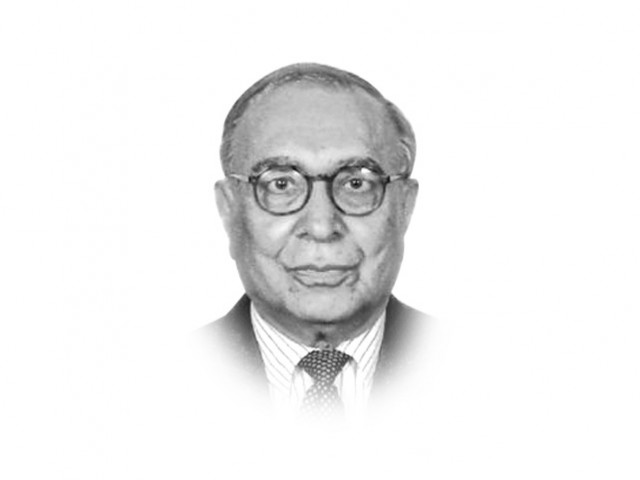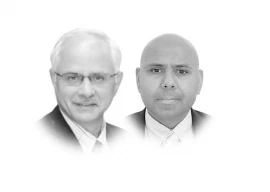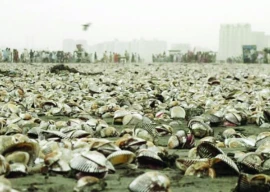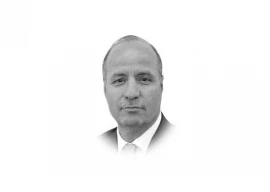
A secret Nato report was selectively leaked to the BBC and The Times with the western media judging instantly that it had overshadowed her Kabul visit. In fact, President Karzai is coming to Pakistan later this month. If President Ahmadenijad also joins a trilateral review of the Afghanistan-centred regional situation, a possible motive to create hurdles in Minister Khar’s mission would have failed. She herself dismissed the Nato leak as old wine in a new bottle. A telling one-liner, her comment was rather generous: there was no wine as yet as the report, a record of unprocessed raw information obtained during 27,000 interrogations of 4,000 Afghan captives simply lacked the mellowing that would turn into a brew at all.
The darkening shadow on Afghanistan is the growing confusion in the the principal Coalition partners. An Afghan soldier kills four members of the French contingent and President Sarkosy, who is fast losing the race for his party’s nomination for the presidential election, advances the French withdrawal to 2013, a full year ahead of the original Nato timeline. Leon Panetta, the US Defence Secretary, creates a stir in Brussels by revealing that the combat role of the 90,000-strong American force will end by mid-2013; then hasty clarifications redefine it as the end of “lead combat role”. Senior Nato officials divulge that the ambitious project of raising a 350,000-strong Afghan national Army is likely to be scaled down because of the state of the European economy. Early signs of panic include Afghan expatriates, who had returned to make fortunes working with the Coalition, transferring money abroad for fear of a likely Taliban ascendancy in future in large areas as Americans disengage from combat.
While this was happening at Nato’s nerve centre, the CIA Chief, David Petraeus was telling the US Senate Select Committee on Intelligence that Pakistan was not putting sufficient pressure on the Afghan Taliban. So it is the season for disengagement for everybody except Pakistan that must do more regardless of what its own precarious security situation demands.
The situation in and around Afghanistan demands a well considered but energetic Afghan policy, the main elements of which must be a deep understanding with President Karzai, mitigation of misperceptions with the non-Pushtun regional leaders, a better mechanism of consultation with Afghanistan’s other neighbours, and a more candid , upfront dialogue with Washington .Whatever grotesque birth Musharraf midwived in 2001, it is time for at least the Foreign Office to cut the umbilical cord and be free to pursue an independent course of action in the best interest of the Afghan and Pakistani people. I hope Khar carried conviction in Kabul when she boldly tried to bury skeletons such as ‘strategic depth’ by redefining it as a mutual construct of close cooperation that the two nations deserve.
It will take a great deal to convert the Qatar procedure, as I prefer to call it at this point of its articulation, into a peace process. The Taliban know that rushing into will weaken their negotiating position. They will, therefore, drag on the preliminaries till they are reasonably assured of the outcome. As long as the night raids hollow out the Taliban field command — evidence of the blood lust characteristic of this war of vengeance — Mullah Omar will hardly signal accommodation on substantive issues. The Qatari hosts mostly hear the CENTCOM narrative. A strong Pakistani diplomatic initiative will help them understand Afghanistan’s complexities better. Turkey piloted a move or two at Istanbul that invoked opposition from Russia, China and Iran — states that figure prominently in present-day Turkish diplomacy. Pakistan must coordinate its analysis with Ankara after this experience. In fact, Khar’s foreign office has the resources to establish and sustain frequent consultations with countries most likely to be affected by how “2014” is played out. At the heart of this diplomacy lies a new bilateralism with Kabul built around political and economic trust. Working together, Islamabad and Kabul can give the right direction to the Qatar process, if it ever becomes one and simultaneously energise the High Peace Council of Afghanistan.
Published in The Express Tribune, February 4th, 2012.














COMMENTS
Comments are moderated and generally will be posted if they are on-topic and not abusive.
For more information, please see our Comments FAQ